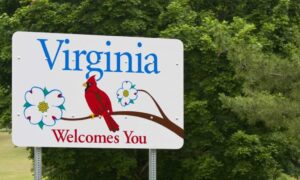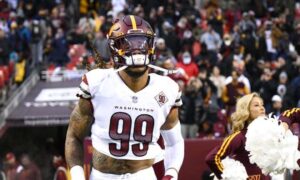
The recent op-ed from The Baltimore Sun dealt a significant blow to the efforts aiming to legalize sports betting in Maryland.
If a referendum is successfully passed on Election Day on Nov. 3, Maryland may soon follow in the footsteps of neighboring states such as Virginia and Washington, DC, by legalizing and regulating sportsbooks.
Maryland has been consistently advancing in the realm of gambling. It first legalized slot machines in casinos back in 2010, and subsequently expanded its offerings to include table games starting from 2012.
Despite this, the influential Baltimore newspaper opposes the expansion of gambling initiatives to include sports betting.
Not this year, anyway.
The state of Maryland sports betting
Maryland voters will have their say on Question 2, a referendum for the expansion of commercial gaming, on Election Day.
Due to the early convening of the General Assembly caused by the COVID-19 pandemic, the original language of the sports betting bill in Maryland was significantly modified before being passed by both the Senate and House this year.
Nevertheless, they chose to proceed with the legislative referendum, which would solely grant voters the power to endorse sports betting. Consequently, the majority of the intricacies regarding sports betting would not be resolved until the General Assembly convenes again in 2021.
Therefore, in its ultimate version, Question 2 merely inquires:
“Are you in favor of the expansion of commercial gaming in Maryland to allow sports and events betting as a means to generate revenue primarily dedicated to education?”
Why the Sun opposes MD sports betting
The Baltimore Sun does not support the current efforts due to the lack of details.
According to the editorial board’s statement:
Although passing a referendum before finalizing the details is not uncommon, it is not justified in this case. The estimated revenue for the state, which is approximately $18 million at a 20% tax rate, is not negligible. However, it falls short of making a substantial impact on education or other expenses in Maryland. Therefore, proceeding without a clear plan or a stipulation that the funds be allocated to education, if desired by lawmakers, lacks justification.
In addition, the Sun’s editorial board expressed concern about the phrasing used in Question 2. The writers are doubtful about the claim that the main intention of sports betting would be to generate funds for education.
The newspaper highlights that the state has already committed to funding amounting to hundreds of millions of dollars, as approved in 2019. Moreover, the implementation of several pandemic-related measures is expected to cause a significant increase in educational expenses in the Old Line State.
In addition, in 2010, when Maryland authorized the operation of casinos, a portion of the tax revenue generated was designated for education. However, according to the newspaper, the funds allocated to education were merely substituted with the casino funds, resulting in the redirection of the original education funds to different areas instead of supplementing the overall education budget. It took a total of eight years to finally address and close this particular loophole.
MD sports betting’s impact on Virginia
The initial version of the sports betting legislation in Maryland encompassed a wide range of specifics, with particular emphasis on licensing, tax rates, allowable bets, and other vital factors.
Nevertheless, the lawmakers have removed the specific information, making it difficult to determine the potential impact of legalized sports betting in Maryland on the state of Virginia. The Baltimore Sun even cited this lack of clarity as a reason for opposing the ballot measure.
Despite this, there is a silver lining for stakeholders in Virginia. The task of enticing bettors away from VA will prove challenging for Maryland and neighboring states. Nevertheless, this will still have an effect on the total amount of money being wagered in Virginia.
Virginia’s sports betting regulations, excluding the illogical prohibition on betting on in-state universities, are designed to foster a competitive marketplace, establish a reasonable tax rate for operators, and offer the convenience of online wagering along with various brick-and-mortar options.
Virginia’s debut of online sportsbooks in early 2021 will potentially discourage sports bettors in the state from seeking alternatives elsewhere, such as neighboring states.







